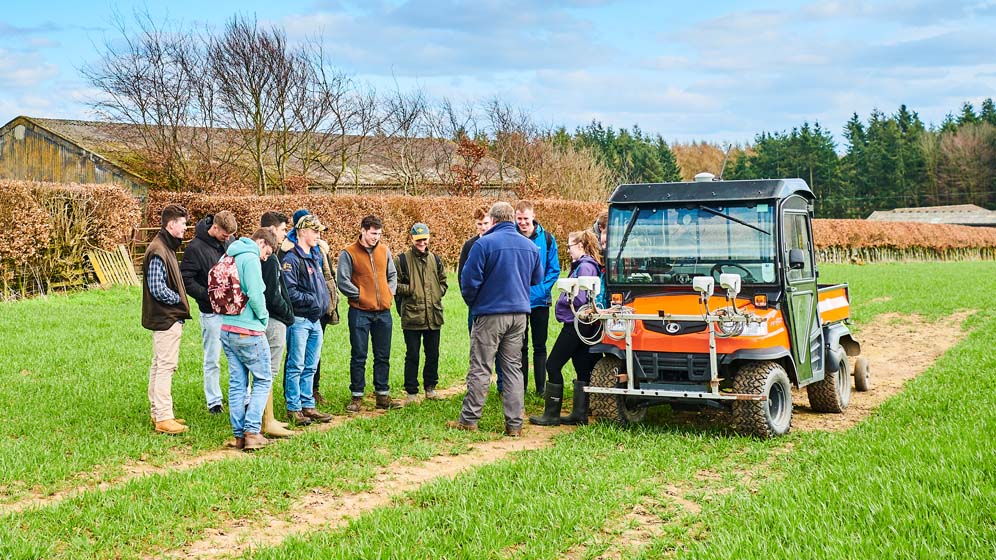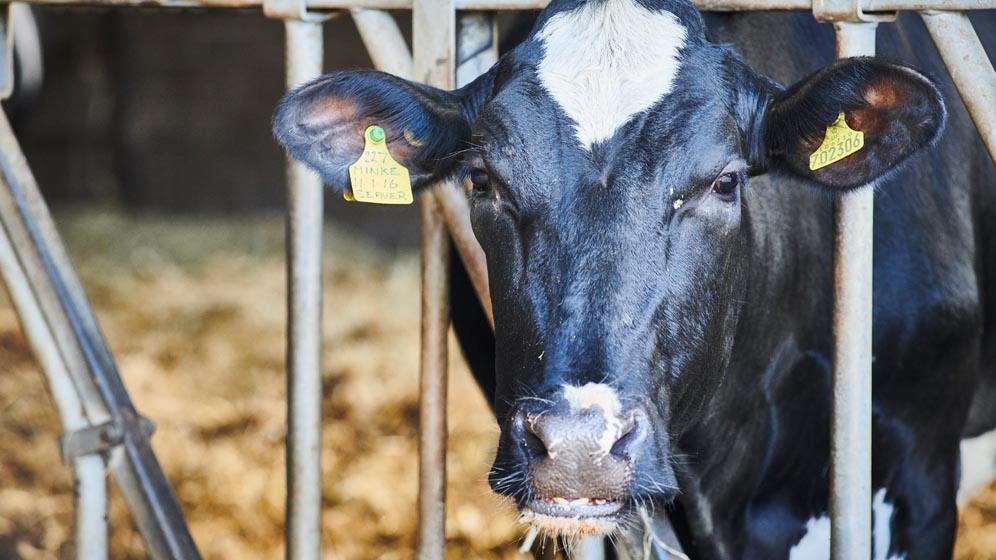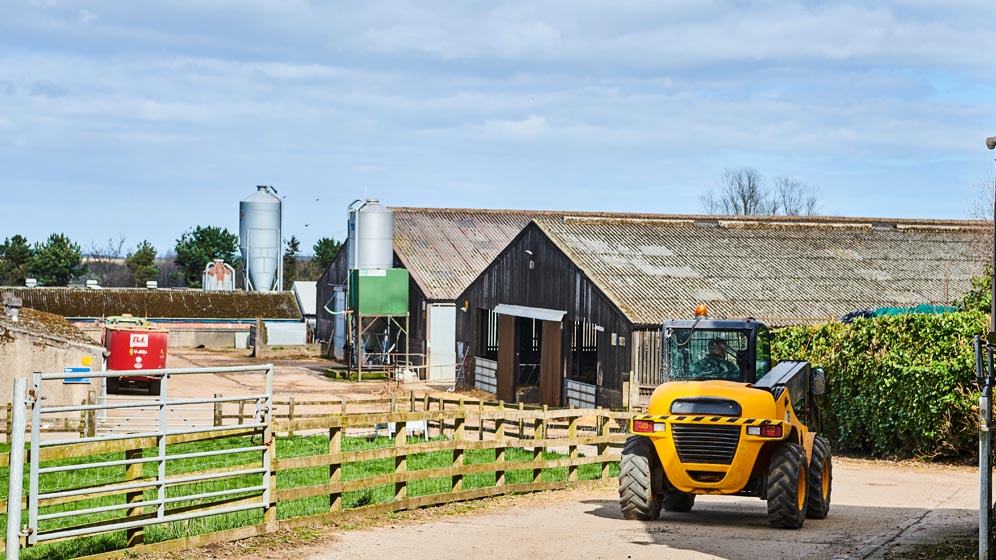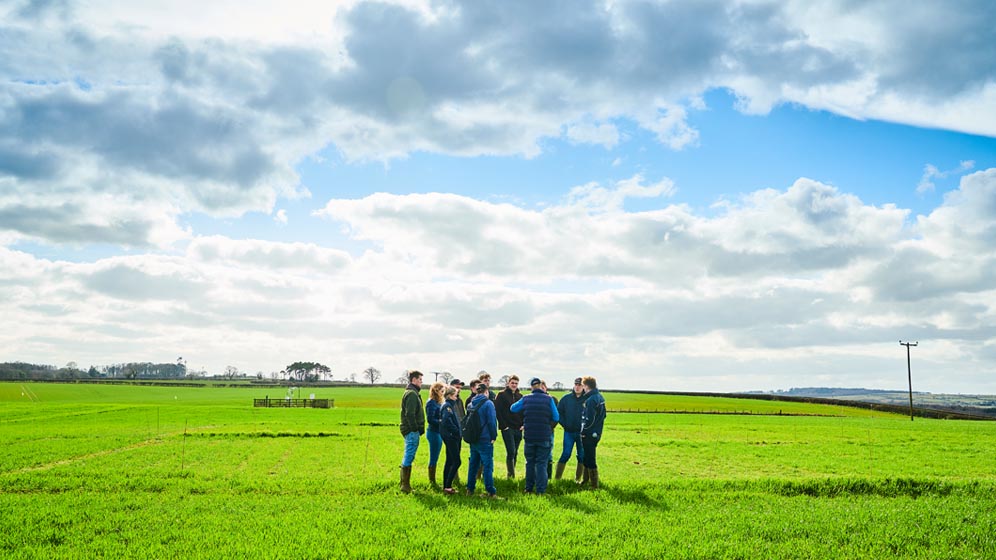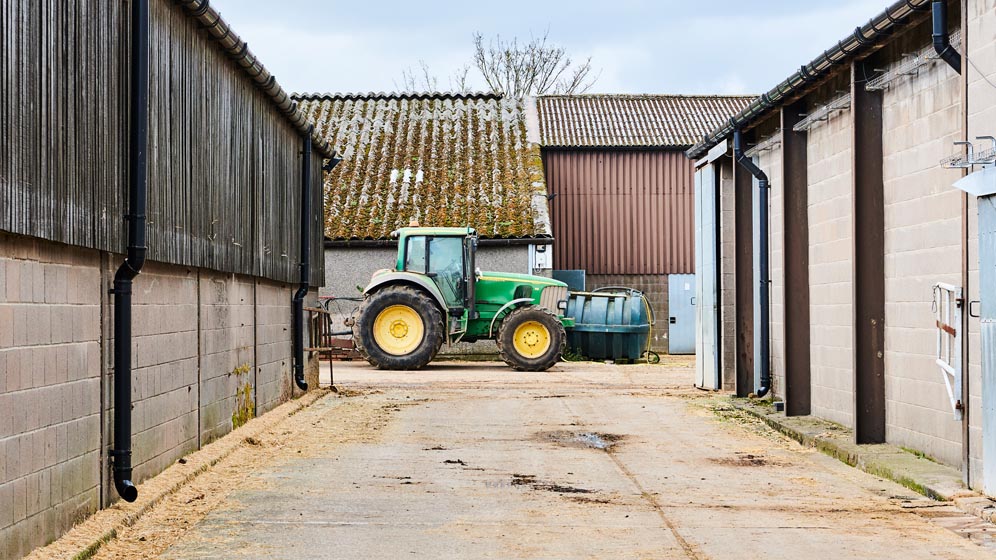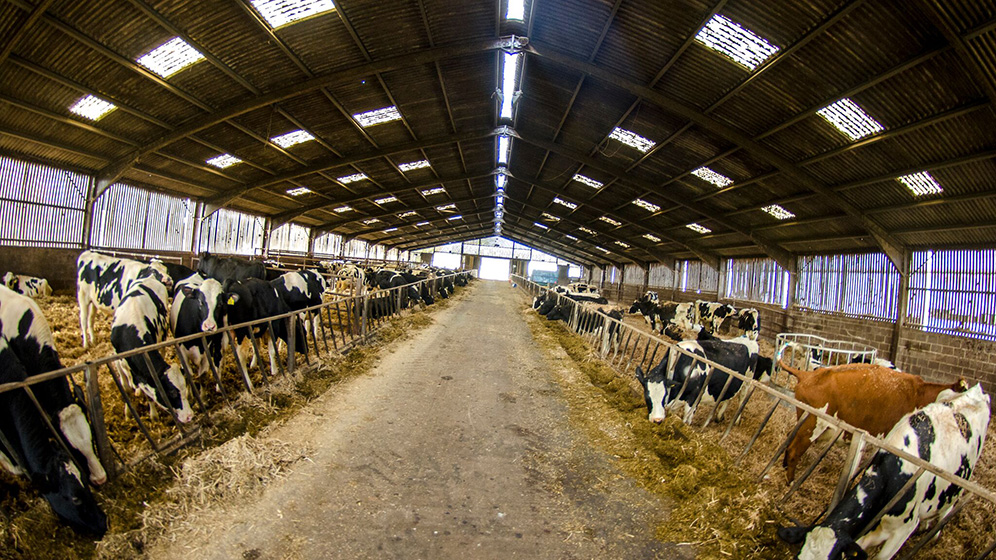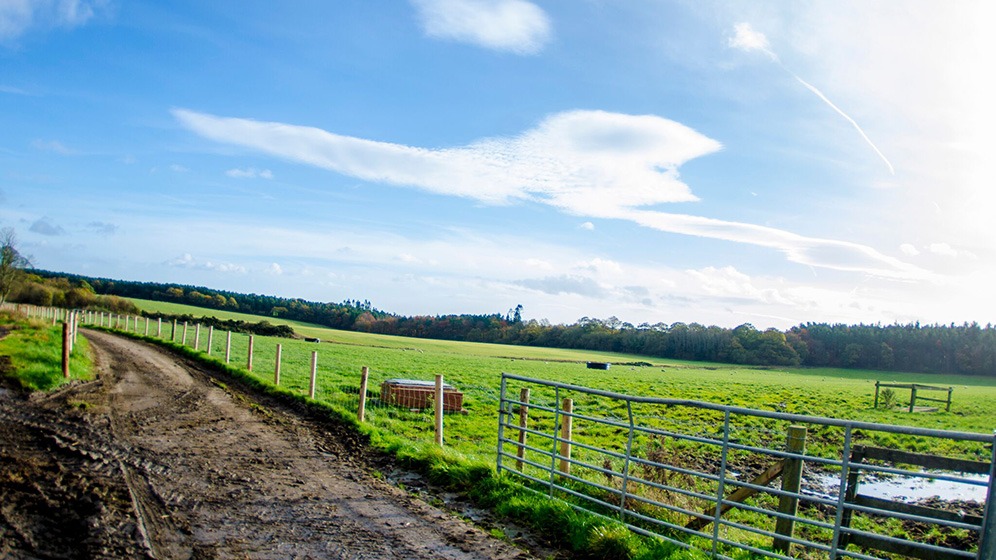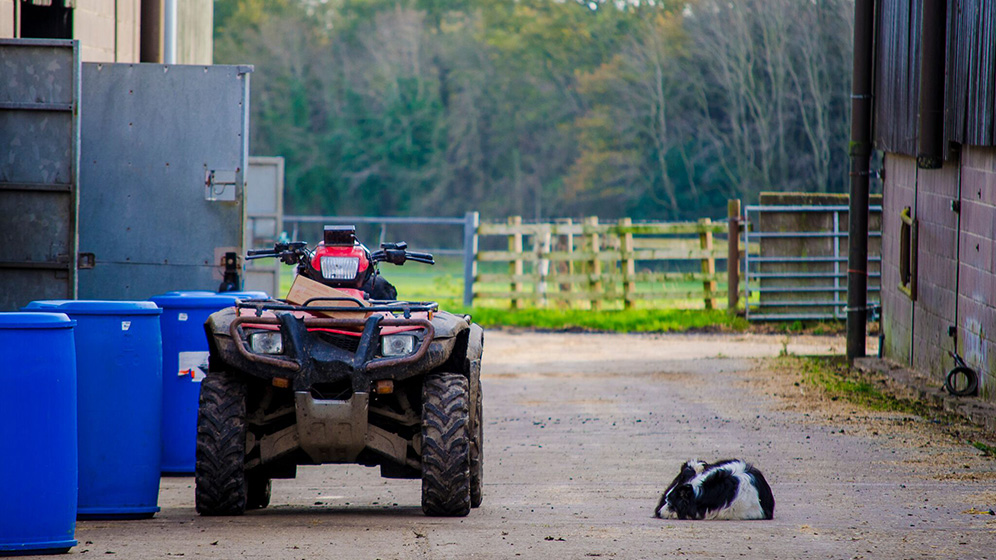Animal Science BSc Honours
- UCAS code: C305
- Full time
- 3 years
In our Animal Science BSc you study the applied science of domestic animals, from molecular biology to whole animals. You cover their management systems to their context in society with a focus on sustainability.
You are currently viewing course information for entry year: 2026
Next start date:
- September 2026
UCAS Institution name and code:
- NEWC / N21
Course overview
Imagine a mix of biology, zoology, veterinary science, agriculture, some business, sustainability and more – this is Animal Science at Newcastle University.
Our Animal Science students learn alongside biologists and agriculture students. You will focus on farm and companion animals, although you can also study laboratory, zoo and wild animals. You will apply the scientific principles of biology, health, nutrition, physiology and behaviour to enhance animal welfare, management, productivity, and importantly, sustainability.
Our course draws on the latest scientific discoveries where you'll study the lifecycle of an animal from:
- microbiology to supply chains
- animal behaviour and interaction with habitats
- animal reproduction and genetics
- local legislation to global issues
Our excellent facilities include state-of-the-art laboratories and our two commercially-run farms which are home to a range of farm animals. You also have access to companion animal resources such as Dog Box, the UK’s first mobile dog behaviour research pod.
An exciting part of your degree is the final year original research project on a subject of your choice. You can use this to explore the latest technologies. You can research your project in our laboratories, on our farms, or at one of the many local animal centres that we work with. You are supervised by staff in our Animal Science research group. They are an internationally recognised centre of excellence in integrative animal science that is applied to areas of societal, industrial and policy importance.
As the degree progresses, you can tailor it to your animal interests to align with your future career.
READ MORE
Your course and study experience - disclaimers and terms and conditions
Please rest assured we make all reasonable efforts to provide you with the programmes, services and facilities described. However, it may be necessary to make changes due to significant disruption, for example in response to Covid-19.
View our Academic experience page, which gives information about your Newcastle University study experience for the academic year 2025-26.
See our terms and conditions and student complaints information, which gives details of circumstances that may lead to changes to programmes, modules or University services.
Quality and ranking
Professional accreditation and recognition
All professional accreditations are reviewed regularly by their professional body.
Modules and learning
Modules
The information below is intended to provide an example of what you will study.
Most degrees are divided into stages. Each stage lasts for one academic year, and you'll complete modules totalling 120 credits by the end of each stage.
Our teaching is informed by research. Course content may change periodically to reflect developments in the discipline, the requirements of external bodies and partners, and student feedback.
Optional module availability
Student demand for optional modules may affect availability.
Full details of the modules on offer will be published through the Programme Regulations and Specifications ahead of each academic year. This usually happens in May.
To find out more please see our terms and conditions
This stage provides a solid base in the underlying science of domestic animals, covering:
- health
- microbiology
- biochemistry
- physiology
We’ll also introduce you to the important concepts of sustainable development. You'll understand the importance of supply chains in how animals are managed. You also choose between introduction to business or a deep dive into the research conducted by scientists across the university and its positive impact on society. Our academic and professional skills training supports you as you transition to university. It will enhance your success in your degree and beyond.
Modules
| Compulsory Modules | Credits |
|---|---|
| Introduction to Business Management | 10 |
| Agri-Food Supply Chains | 10 |
| Animal Health | 10 |
| Introduction to Animal Physiology | 10 |
| Sustainability in Practice | 20 |
| Academic and Professional Skills | 20 |
| Introduction to Sustainability | 20 |
| Cells and Biomolecules | 20 |
You’ll continue to develop your knowledge of animal biology, applying the scientific principles from Stage 1 to more applied topics such as:
- sustainable farm animal production systems
- behaviour of animals in wild and domestic settings
- nutrition and feed science
- reproduction and genetic improvement
During your Sustainable Solutions module, you’ll have an exciting opportunity to solve a real-world problem. You’ll form a consultancy team and develop a solution to a genuine business issue posed by industry collaborators.
We encourage all our students to consider a professional placement or study abroad year between Stage 2 and 3.
Modules
| Optional Modules | Credits |
|---|---|
| Human Resource Management | 20 |
| Career Development for second year students | 20 |
| Farm Business Management | 10 |
| Marketing Strategy | 20 |
| Qualitative Research Methods | 10 |
| Animal Behaviour | 10 |
| Animal Function (Physiology and Development) | 20 |
| Vertebrate Biology | 20 |
Other optional modules may also be available.
In your final year, you will enjoy the independence of choosing and undertaking a new scientific research project. You could be contributing to the latest scientific discoveries. Some of our students present their findings at renowned conferences before they graduate.
Your research project, guided by your supervisor, will be 25% of your marks. It can be lab-based, carried out at one of our University farms, or an animal centre. You may join a team of scientists working on an existing project, or develop the idea yourself in collaboration with your supervisor.
Another highlight of your degree will be is working as a group to organise a public conference on current issues in animal science. It’s a great opportunity to improve your skills in project management, organisation and teamwork. The experience and transferable skills gained impresses future employers. You and your fellow students will be proud of this tremendous collective personal achievement.
For your optional modules, you can follow your interests and choose between business, biology, farm animals or an animal-related short-placement at one of Newcastle’s many animal establishments. Throughout your degree you’ll explore the latest research, technologies and get a global perspective.
Modules
| Compulsory Modules | Credits |
|---|---|
| Animal Science Conference - Current Issues and Debates | 20 |
| Reproduction in Farm and Companion Animals | 10 |
| Applied Animal Nutrition | 10 |
| Animal Welfare and Behaviour | 20 |
| Dissertation | 30 |
| Optional Modules | Credits |
|---|---|
| Career Development for final year students | 20 |
| Your Future - occupational awareness | 10 |
| Insight, Innovate, Impact | 10 |
| Physiological Zoology | 20 |
We base these figures and graphs on the most up-to-date information available to us. They are based on the modules chosen by our students in 2024-25.
Teaching time is made up of:
- scheduled learning and teaching activities. These are timetabled activities with a member of staff present.
- structured guided learning. These are activities developed by staff to support engagement with module learning. Students or groups of students undertake these activities without direct staff participation or supervision
Teaching and assessment
Teaching methods
On average, you'll spend 25 hours a week with your lecturers and academic staff. This time will include a combination of:
- lectures
- seminars
- group tutorials
To reinforce your theoretical learning, you’ll experience:
- practical laboratory sessions
- visits to animal establishments
- field trips to Newcastle University farms
- guest speakers and networking events
Throughout the course, you’ll carry out varied and interesting project work and submit reports and presentations in groups and individually.
Assessment methods
You'll be assessed through a combination of:
-
Assignments – written or fieldwork
-
Case studies
-
Coursework
-
Dissertation or research project
-
Examinations – practical or online
-
Group work
-
Practical sessions
-
Presentations
-
Projects
Skills and experience
Practical skills
We’ll arrange frequent field trips to a range of animal-related centres and our farms. These trips will help you:
- apply your learning
- develop your practical lab skills
- understand the wider context of the animal science sector
- form a close-knit bond with your peers
There are plenty of opportunities to get more hands-on experience with animals through our farms and a variety of animal establishments around Newcastle. These are valuable additions if you are planning on careers in eg veterinary or dog behaviour.
Business skills
We encourage all our students to take a placement year between Stages 2 and 3. You can spend this year working in the industry or studying abroad.
If you study abroad, you’ll join one of our many global partner universities where teaching is in English. Many of our modules have input from industry. This can include:
- guest lectures
- industry-set challenges
- business visits
- industry events
- student membership of professional bodies
Many of your assessments are designed to be of use in the various roles an animal scientist can enter. For example, devising an animal welfare audit, a short policy brief, a conference poster or science communication. These authentic assessments real-life experience to your degree and enhance your confidence and employability.
Newcastle University also offers a range of paid internships, career development modules and extra-curricular opportunities.
Research skills
Research is at the heart of what we do. You'll learn about the latest research from our school and your lecturers, whose research extends from the molecular to the whole animal.
Our research colleagues have expertise in a range of specialisms including:
- nutrition
- reproduction
- health
- welfare and behaviour
- sensor and precision technologies
This research has positive impact in areas of industrial and social importance to address real-world challenges. Our research-led approach to teaching means you are aware of the direction of scientific discovery. It also introduces you to various methods and latest thinking, and ensures your degree keeps you at the cutting edge of scientific understanding.
Your dissertation project is a great example of where you contribute your discoveries to the discipline. You will develop skills for this research in our dissertation preparation module at Stage 2. Some students publish their research in scientific journals or present it at eminent conferences where they network with other researchers.
You can progress to a PhD and research a specific project. Students have also developed research skills through paid internships, mini-placements and year-long placements.
Opportunities
Study abroad
Gain a global perspective, enhance your academic profile and open doors to exciting new experiences by studying abroad for one semester or a full academic year at one of our partner universities overseas. Study abroad usually takes place in stage 3 of your studies and extends your degree by one year.
You'll have the choice to study at a leading international university, including:
- Monash University
- University of Hong Kong
- University of Pittsburgh
You can also opt for short-term global opportunities like summer schools, virtual exchanges or internships that usually take place over the summer months.
Work placement
During your degree you can apply to spend 9 to 12 months on a professional industrial placement, in the UK or abroad. Your work placement is a great opportunity to gain practical experience, acquire key business skills and make industry contacts. You’ll get University support from our dedicated team. Work placements usually take place between Stages 2 and 3 and extend your degree by a year.
Recent Agriculture and Animal Science industrial placements include:
- Agricultural Graduate Sales Trainee with Davidsons Animal Feeds
- Agronomist at Marks and Spencers
- Ruminant Technical Adviser at Carr's Billington
- Placement student at OSI Food Solutions UK
- Placement student at For Farmers
- Placement student at Oaklands Farm Eggs Ltd
Facilities and environment
Facilities
The Agriculture Building is the home of Agriculture and Animal Science, based in the School of Natural and Environmental Sciences, and located on our vibrant, city-centre campus. Here some of our state-of-the-art facilities include laboratories, plant growth incubators and vertical farming units.
During your studies, you'll have access to Newcastle University Farms. NU Farms encompasses mixed animal, arable and biomass operations, with a commercial dairy and beef herd and a planned bed-and-breakfast pig enterprise. The farms are used for commercial, teaching and research purposes where you develop skills relating to data gathering and analysis, soil sampling, animal and plant health, pests and weed identification. At NU Farms we promote innovation to shape policy and support scientific research. We have extensive collaborations including:
- UK Agri-Tech Centre with on-site facilities
- Fera Science (Fera)
- Institute of Agri-Food and Rural Innovation (IAFRI)
- Linking Environment and Farming (LEAF)
With a focus on sustainability, input from industry and research-driven teaching led by top academics we will prepare you for a successful career in agriculture, animal science and related fields.
We have extensive links with other farms, businesses and animal enterprises to broaden and deepen your understanding.
Animal Science students will also be interested in the high tech gait lab; our laboratories for dissections, microscope work etc and the UK's first our mobile dog behaviour research pod.
Support
We take your health and wellbeing seriously and are committed to supporting you throughout your studies so you can fulfil your potential at university. This support includes:
- your degree welcome event where, in small groups, you get to know those on your course
- a personal tutor who is an academic member of staff who can help you with academic and personal issues throughout your degree
- a peer mentor scheme which pairs you with a current student from your course to help you navigate your first year at university
- a staff-student committee, to give you an opportunity to have a say in how your degree works
- support, treatment and guidance on mental and physical health from our wellbeing team
Your future
An Animal Science BSc degree can prepare you for a career in animal science, agriculture, the companion animal sector and the environmental sector or anything that requires biological science degree.
Many fulfilling careers are open to you in:
- animal welfare
- animal nutrition
- animal breeding
- animal health
- food supply chain
Career examples could include:
- research scientist working in product development
- account manager for an animal health company
Join a network of successful graduates
Newcastle graduates have a strong reputation in the industry. They’re sought after for many animal-based roles, including graduate schemes in the:
- food supply sector, such as Cranswick
- animal reproduction and genetic improvement, such as Genus
Recent graduates have found roles as:
- Dairy Customer Agricultural Manager at Arla Foods
- Dog Behaviourist at the Dogs Trust
- Junior New Product Developer at Mars Pet Nutrition Europe
- Animal Welfare Advisor to the New Zealand Government
- Wildlife Conservation Project Officer
Others have progressed to veterinary, teaching, medicine, set up their own animal-related businesses, or entered other graduate roles requiring a general degree and the transferable skills this offers.
Enterprising students
Sorry, you need JavaScript to view this video
The Sustainable Solutions module at Newcastle University offers you the opportunity to collaborate with industry professionals on projects that address real-world sustainability challenges. This hands-on experience enhances your problem-solving skills and prepares you for successful careers in sustainability-focused roles.
You'll have many opportunities to interact with industry through:
- guest speakers
- visits
- industry networking events
- opportunities to attend conferences
Careers support
Our Careers Service is one of the largest and best in the country, and we have strong links with employers. We provide an extensive range of opportunities to all students through our ncl+ initiative.
Visit our Careers Service website
Recognition of professional qualifications outside of the UK
If you’re studying an accredited degree and thinking about working in Europe after you graduate, the best place to find current information is the UK Government’s guidance on recognition of UK professional qualifications in EU member states. This official resource explains whether your profession is regulated in another country, what steps you need to take, and which organisation you should contact.
Entry requirements
All candidates are considered on an individual basis and we accept a broad range of qualifications.
The entrance requirements and offers below apply to 2026 entry.
| A-Level | |
|---|---|
| International Baccalaureate | |
|---|---|
Other UK and the Republic of Ireland qualifications
Alternative offers at Newcastle
Through one of our contextual or alternative offer routes, you could receive an offer of up to three grades lower than the typical requirements.
Contextual offers
We use certain contextual data from your UCAS form, alongside your application, to consider challenges that you may have faced in your education and the potential effect this may have had on your qualifications. This means you may be eligible to receive a lower contextual offer.
PARTNERS offers
One of the largest and longest support entry routes to university of its kind for students from underrepresented backgrounds. We support applicants from application through to study.
Realising Opportunities offers
A unique programme delivered in collaboration with 10 leading, research-intensive universities in the UK. The programme is open to students in Year 12/first year of college.
Pathways to Newcastle offers
Pathways to Newcastle, our national skills entry route, is available for specific subject areas.
High Performance Athletes
We support promising athletes at the application stage, who compete in regional, national or international levels in their sport.
Qualifications from outside the UK
English Language requirements
Entrance courses (INTO)
International Pathway courses are specialist programmes designed for international students who want to study in the UK. We provide a range of study options for international students in partnership with INTO.
These courses are specifically designed for international students who want to study in the UK and progress onto one of our undergraduate degrees. Our International Study Centre, has a range of study options including:
- International Foundation
- International Year One
- English Language courses
Find out more about International Pathway courses
Admissions policy
This policy applies to all undergraduate and postgraduate admissions at Newcastle University. It is intended to provide information about our admissions policies and procedures to applicants and potential applicants, to their advisors and family members, and to staff of the University.
University Admissions Policy and related policies and procedures
Credit transfer and Recognition of Prior Learning
Recognition of Prior Learning (RPL) can allow you to convert existing relevant university-level knowledge, skills and experience into credits towards a qualification. Find out more about the RPL policy which may apply to this course.
Tuition fees and scholarships
Tuition fees for academic year 2026-2027
The 2026 entry home fees have not yet been confirmed.
| Qualification: BSc Honours | |
|---|---|
|
Home students full time 3 years |
Tuition fees (Year 1)
Not set |
|
International students full time 3 years |
Tuition fees (Year 1)
31,500 |
Year abroad and additional costs
For programmes where you can spend a year on a work placement or studying abroad, you will receive a significant fee reduction for that year.
Some of our degrees involve additional costs which are not covered by your tuition fees.
Scholarships
Find out more about:
Open days and events
You'll have a number of opportunities to meet us throughout the year at our on-campus and virtual open days.
You'll be able to:
- explore our beautiful campus
- find out about our vibrant city
- discover what students think about studying at Newcastle
You'll also have the opportunity to speak to academic staff and find out more about the subjects you're interested in.
Find out about how you can visit Newcastle in person and virtually.
We regularly travel overseas to meet with students interested in studying at Newcastle University. Visit our events calendar to find out when we're visiting your region.
How to apply
Apply through UCAS
To apply for undergraduate study at Newcastle University, you must use the online application system managed by the Universities and Colleges Admissions Service (UCAS). All UK schools and colleges, and a small number of EU and international establishments, are registered with UCAS. You will need:
- the UCAS name and institution codes for Newcastle University (NEWC/N21)
- the UCAS code for the course you want to apply for
- the UCAS 'buzzword' for your school or college
If you are applying independently, or are applying from a school or college which is not registered to manage applications, you will still use the Apply system. You will not need a buzzword.
Apply through UCASApply through an agent
International students often apply to us through an agent. Have a look at our recommended agents and get in touch with them.
Get in touch
By phone
Call us on +44 (0) 191 208 3333 and press option 1. Our opening hours are Monday to Friday 10am until 4pm.
Live chat
Our NCL chatbot might be able to give you an answer straight away. If not, it’ll direct you to someone who can help.
You'll find our NCL chatbot in the bottom right of this page.
Online
Book a one-to-one chat
Book a slot with one of our Animal Science academic staff for a one-to-one chat about your subject of interest, student experience, and more: Book now
Keep updated
We regularly send email updates and extra information about the University.
Receive regular updates by email






